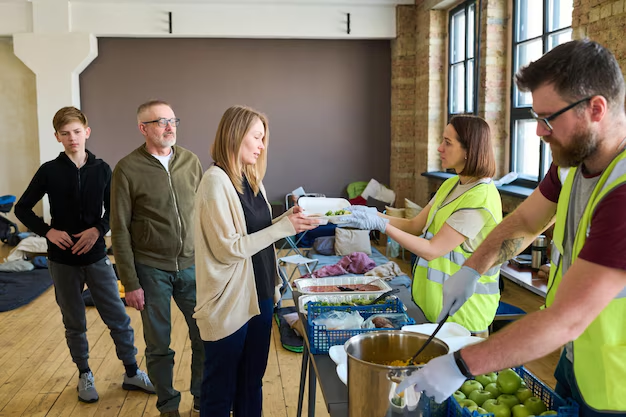Finding Shelter in Fort Wayne: What You Need to Know
If you're seeking support in Fort Wayne, Indiana, understanding your options for homeless shelters is crucial. Ensuring you or someone you know has a safe place to stay is the top priority. Fort Wayne, with its resources and community efforts, provides various services to assist those facing homelessness. Whether it's a temporary shelter for individuals, families, or specific supportive services, there are numerous options available.
Homeless Shelter Options in Fort Wayne
The primary goal of any homeless shelter is to offer immediate, temporary housing and support. In Fort Wayne, several organizations are dedicated to this mission. The Fort Wayne Rescue Mission is one such organization, providing emergency services and transitional programs for men, women, and children. There's also Vincent Village, which focuses on family support; they offer transitional housing and a variety of services designed to set up families for long-term success.
For women and children specifically, the Charis House offers comprehensive support through temporary housing, counseling, and job-training services. Additionally, Just Neighbors Interfaith Homeless Network works with families to provide them with essential resources like shelter, meals, and personalized support.
Beyond Immediate Shelter: Government Aid Programs
Understanding the landscape of government aid programs can open pathways for sustainable living beyond temporary shelter. Programs like the Emergency Solutions Grant (ESG) can provide financial aid to help with immediate housing costs, while Section 8 housing vouchers offer long-term rental assistance by subsidizing rent in privately-owned residences.
Being informed about these programs can assist individuals in moving from temporary shelter into permanent homes, thus stabilizing their living situations and developing future resilience.
Exploring Financial and Debt Relief Options
While seeking shelter is just the beginning, navigating financial assistance programs can be transformative. SNAP benefits for food assistance and TANF for family support are valuable resources. Understanding Canada's Child Tax Credit or other similar financial relief options can provide crucial support.
For those facing debt, considering debt relief options, like consolidation loans or negotiation services, can be an essential step in regaining financial clarity and stability. Credit counseling services are also invaluable in helping you understand your financial situation and create a roadmap toward financial recovery.
Paths to Educational Opportunities
Education can be a pathway out of homelessness, offering new skills and job opportunities that lead to financial independence. Programs like Pell Grants for higher education or vocational training can prove invaluable. Scholarships specifically aimed at low-income individuals are available and can pave the way for brighter futures.
Whether it's obtaining a GED, attending trade school, or pursuing higher education, these programs can significantly impact one's ability to secure stable, well-paying work.
By focusing on these supportive structures and understanding the resources available, individuals experiencing homelessness can take proactive steps toward reclaiming their lives and ensuring a secure future.
Support Resources for Homeless Individuals in Fort Wayne:
- 🏠 Fort Wayne Rescue Mission: Emergency housing and transitional programs
- 🌟 Vincent Village: Family-focused housing and support
- 👩👧 Charis House: Supports women and children with housing and job training
- 🤝 Just Neighbors Interfaith Homeless Network: Comprehensive family support
Financial Assistance and Educational Opportunities:
- 🌐 Emergency Solutions Grant (ESG): Immediate housing assistance
- 🏡 Section 8 Housing Vouchers: Long-term rental assistance
- 💵 SNAP and TANF: Food and family financial assistance
- 📚 Pell Grants: Funding for education and vocational training
- 💳 Credit Counseling: Help manage and relieve debt

